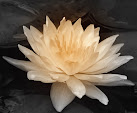Reflections on “Frost at Midnight”
If only we could be free, as ash floating from the embers.
No restraints, no responsibilities; no schedules or accountability.
The infant sleeps soundly, at peace in such a way no man could ever be.
And according to the poet’s recollections of childhood, no child could ever be.
The babe’s peace hinges on fulfilled needs. There is no real freedom there.
What then, is freedom’s identifying mark?
Beyond the monotony of routine and the prison of dim surroundings.
Even nature, a healing teacher, becomes dull as a constant companion.
Where is the spark?
The small speck of rightness surrounded by all that is cheap and temporary?
I am appalled and humbled frequently at the recognition of my own ignorance, spending years confident that my understanding of a particular aspect of the world is sound. And then, in a single discussion with a friend or in a few sentences from a book I realize what had always seemed accurate no longer works. How can this be? How can I know less after years of life and study? Must I resign myself to the apparent fact that I perceive and intuit details, yet am simply unable to correctly interpret or synthesize them?
Coleridge speaks to his sleeping child, and to me. Though his stanza tends toward a pantheistic view of God, the words are memorable:
“He shall mould thy spirit, and by giving make it ask.”
I may not have all the answers or even the right questions. It does not matter how often I encounter thoughts or ideas clearer than my own. But what is imperative is the desire to wonder, to explore, and reason.
“He shall mould [my] spirit.”
“And by giving make it ask.”
This is a gifted mark of freedom.
Subscribe to:
Post Comments (Atom)

3 comments:
This is so beautifully written and I feel humble to even respond. Please forgive me for my simple mind:
The higher we climb in our search of learning and wisdom the more we become aware that knowledge
is infinite.
The ability to continue this infinite quest, with the curiosity of a child, is freedom. I picture one flying
in the air like Peter Pan's Wendy; flying vigorously and happily, breathing in each molecule, knowing that each is filled with knowledge and questions; and when breathed in they become our sustenance.
Survival is not certain without it.
Knowledge becomes our prison, our demise, if we limit it and accept it only at face value.
"Knowledge becomes our prison, our demise, if we limit it. . ."
This is so true. Thank You for reading and reflecting and sharing.
In the end, can the only bliss truly be found in ignorance?
I think so.
When a baby's needs are consistently met, then they are only to be concerned with long moments of peace.
That's what I'm taking away from the poem, even though that is NOT the final point. :P
Post a Comment